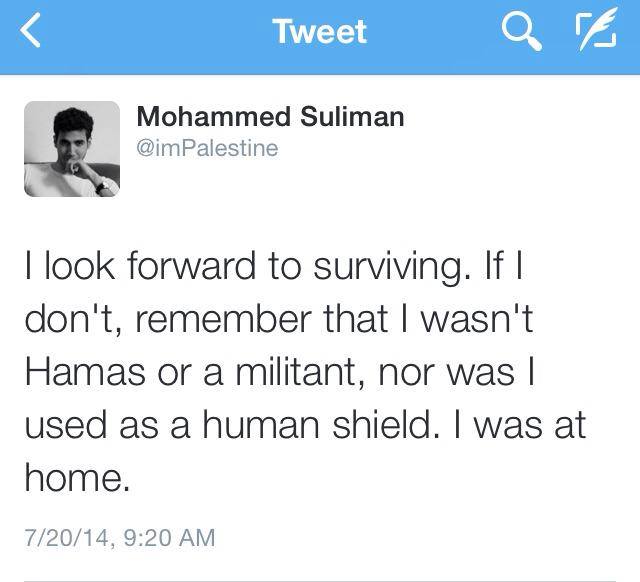I was asked by my Sunday school class to help them understand what is going on in Israel and the Palestinian territories, and how if at all this connects with the Bible. I was going to try to make a video with a brief overview of the history of Israel, providing maps and illustrations. But I have decided that adding yet another video on this topic to what is already on YouTube may not be the best use of my time. There are many – some quite good, most extremely one-sided. But even from the latter you can learn things, at least about how some constituencies view things, provided that you don’t listen to only one side’s perspective. So I will share one video here which at least tries to provide narratives from both sides, encouraging you to seek others, including ones which express views you are inclined to accept and ones which articulate views you are inclined to reject. And then, instead of making my own video, I will offer a few brief points about my own perception, starting with the question of ancient and Biblical connections.
So here are some thoughts and views of mine on this topic:
What is the connection of the current conflict to the Bible? I would say that there is no real connection. Many Christians in North America think that the very existence of the modern state of Israel is a fulfillment of prophecy. But that view depends on a particular problematic way of reading the Bible as focused on the “end times.” This approach wants the present day to be the focus of at least some of the Bible, and thus prefers to say that references to the temple and the Roman empire in works like Revelation are about a rebuilt temple and restored Roman empire, rather than the more natural reading, which is that it refers (as Revelation explicitly states) to realities in its author’s own time.
Despite what you will hear, there is not an endless history of conflict between Jews and Arabs, going back to Isaac and Ishmael. When Jews were persecuted in Christian Europe, they often found a safe haven in predominantly Arab and predominantly Muslim territories.
The modern nation state is a relatively recent phenomenon. When the kingdoms of Israel and Judah existed in ancient times, they were almost always vassal kingdoms within some empire – whether that of Egypt, Assyria, Babylon, Persia, Greece, Rome, or any other.
There was a united Israel for relatively little of the history of the people of Israel. At no point was the nation ethnically and religiously monolithic. There are laws about the treatment of foreigners, and at no point in the history of Israel is a promise given that the nation will possess the land regardless of how they behave. And so the attempt to appeal to the Bible as though it means that one cannot criticize Israel is not merely wrong, it is a diabolical inversion of what the Bible says. Throughout much of ancient Israel’s history, we find people called false prophets saying that God is on their side, and those whom the Bible considers to have been true prophets predicted exile and called the nation to repentance.
But all of the above is at best tangentially related to the realities of modern Israel. Israel is beleaguered and war-torn for the same reasons that places like Northern Ireland, Kuwait, Pakistan, and the former Yugoslavia have been at various times over the past century. At the end of the colonial era, lines were drawn creating modern nation-states, which typically divided people from others whom they considered their kindred, and lumped them with others that they felt less kinship with. Extracting Israel from world history as though it were not a result of processes we have seen at work elsewhere hinders understanding.
The modern nation of Israel was created to be a homeland and safe haven for Jews who were experiencing not merely persecution but extermination elsewhere. This is one reason why one-state solutions are unappealing to many Israelis. If Jews can potentially become a minority in Israel, it is doubtful whether it can serve this function. I don’t think that anyone who understands the Holocaust can fail to empathize with and appreciate this point.
From the Palestinian side, most Americans should try to put themselves in the shoes of Native Americans, being driven from land that they inhabited for a very long time and given small territories where they exercise limited sovereignty. But imagine that, unlike here, you do not have citizenship, and you are not free to travel outside of your reservation. Some Americans would surely take up arms if others did to them what their ancestors did to others. Others might simply live lives of despair and hopelessness. I don’t think that most people can fail to empathize with and appreciate this perspective, either.
And so we have two sides, and many people who seem incapable of recognizing that both sides have valid points, aims, and grievances, and that there have been atrocities committed by both sides. Usually when someone points this out, the reaction is to emphasize that one side or the other has been far worse. I don’t dispute that, if a tally were made, the balance would not be equal. When is it ever? But that does not appear to me to justify either side simply pressing ahead with business as usual.
A two-state solution confronts the problem that sacred spaces for those who would reside in both states will be found with the other’s state. And so, in my opinion, the only viable two-state solution has to include freedom of movement so that no one in either territory is hindered from going to the other. We have seen borders largely made irrelevant in places like the European Union, and so it is not impossible, but it is unrealistic in the present climate of understandable distrust on both sides in Israel and the Palestinian territories.
I would also note that the Christians of the Holy Land are mostly Palestinian. American Christians often have surprisingly little interest in seeking out and listening to their perspectives, never mind trying to offer help and support for fellow Christians in the region.
Anyone who thinks or speaks as though the interests of a particular constituency makes what people are experiencing in the region on both sides less tragic should not be taken seriously. You can strongly believe that Israel has the right to exist and defend itself. You can also (and simultaneously!) believe that the Palestinians have the right to freedom and mobility and an infrastructure that makes life more bearable. But if believing either or both leads you to consider the deaths of civilians, including children, to be something that is unfortunate but necessary, then I think that your commitment to a particular subset of humanity has come to outweigh your commitment to humanity as a whole. And if that has happened, I would encourage you to rethink your outlook – not necessarily your political commitments, but your view of the value of all human life. Because “never again” is a slogan that should lead us to equally abhor when people say “gas the Jews” and when people say “gas the Arabs.” And I have to believe that it is possible to work for what we consider to be just and right without engaging in acts of injustice that by definition undermine the rightness of our own stance.
These are some of my thoughts on the subject. Feel free to disagree with me, challenge me, or in other ways discuss the subject. That’s what I suspect will be happening in my Sunday school class over the next several weeks, too.













